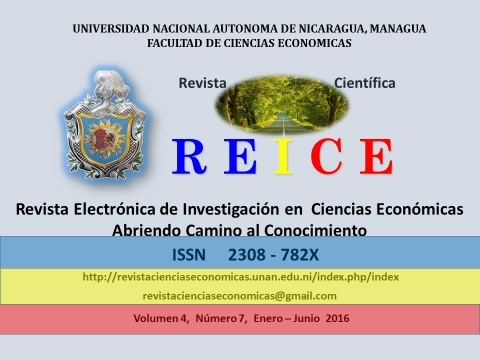Transformation in the family structure and social capital as part of the adaptive strategies in Malacatoya, Boaco
DOI:
https://doi.org/10.5377/reice.v4i8.3054Keywords:
adaptive strategies, peasantry, peasant family unit, social capital, exchangeAbstract
This article looks to discern of which are the internalezed adaptive strategies by the peasantry of Malacatoya’s territory. To carry out the research process, a methodology which combined ethnography with descriptive statistics and case analysis was developed. From the theoretical approach that the peasantry, by pressure from the dominant system, requires to choose different adaptive strategies, it was found that: having more than half of the peasant of territory access to land multiactivity is minimal; the structure of the family unit is set to a minimum number of members to promote self-consumption; and cultural mechanisms such as “hand back” are the social capital that complements the economic capital missing in families.

